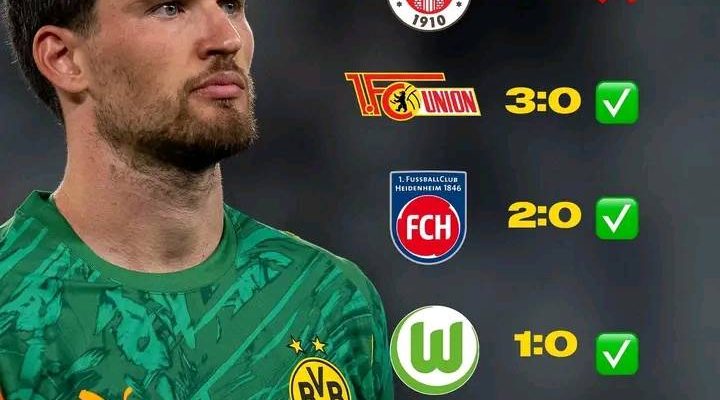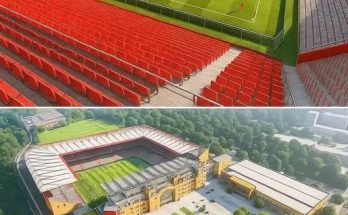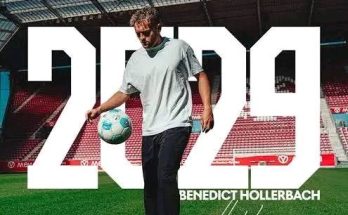Way to go BVB! That cry of joy, of defiant optimism, encapsulates what it means to truly believe — in the team, its history, its potential. But today, when advocates chant for Dortmund to win in the Champions League and the DFB‑Pokal, the insistence is not just about silverware. It is about asserting a vision for German football, for Dortmund’s place in Europe, and for the broader meaning of competition itself.
First: winning the Champions League now must be part of the ambition because the stakes are uniquely high. In an era when European football is polarized by wealth, by the dominance of a few superclubs, when financial fair play is porous and broadcasting rights bend power toward the rich, a club like Dortmund needs that top prize to re‑establish credibility. To claim that trophy is to say: this is possible still — for clubs outside the biggest spenders. History matters: the last time Dortmund lifted Europe’s premier club trophy was 1997. That memory looms, and to erase the decades of near‑misses, of promising squads falling short, a new title would join the lineage and reset expectations. To the players, the board, the fans: it transforms ambition into legitimacy, not just wishful thinking.
If Dortmund continue to hover near the top but never cross that boundary, they risk being seen as a perennial candidate but perennial also in failure. They have reached finals, semifinal runs, made stirring comebacks — but they have fallen short. The difference between “almost great” and “great” is often one moment, one match. Capturing the Champions League would puncture the narrative of “could have been,” not just for Dortmund but for German football more broadly, reinforcing that Bundesliga teams can compete, can win at the very top.
Second: the DFB‑Pokal matters equally, though in a different dimension. The domestic cup is the shorter path, the more volatile path — fewer rounds, knockout chaos. But because it is less predictable, each round demands focus, and winning it shows consistency over pressure. It shows that even when the league is gruelling, when form dips and fatigue mounts, you can grind through hurdles, win the cup tie away, manage the momentum, handle the underdog pressure. That makes the club robust. It prevents “good in Europe, slack at home” narratives from taking root.
Also, the DFB‑Pokal offers a tangible morale boost, and psychologically it acts as a safety net. Even if the league title slips, or European chances falter, the cup can salvage a season. It gives fans a celebration, the club something to show. For young players, the cup offers minutes, a chance to prove themselves in knockout pressure. For the managerial staff, the cup is a proving ground. And for the club hierarchy, it is a relatively lower-risk route to silverware. Dortmund’s coach has even said the German Cup is the “shortest way to the title” in the season. (Reuters)
Taken together, both titles represent dual legitimacy: European and domestic. To win Europe without domestic hardware invites criticism: “they cheated in Europe but couldn’t show consistency at home.” To win only domestic cups but never claim continental glory invites the reverse: “small king, big pretender.” To take both is to unify the club’s identity across competitions.
Moreover, in the modern scheduling and structural changes to the Champions League format — with larger group stages, more matches, unpredictable draws — there is a premium on squad depth, rotation, stamina. To succeed, a club must be capable on multiple fronts. You can’t treat the cup lightly, you can’t rest players indiscriminately, because the risk of upset is real. If Dortmund decide “the cup doesn’t matter,” they risk upsets, injury fatigue, lack of momentum — any of which could derail European runs. By insisting both must be won, the message is clear: no half measures, no prioritizing one over the other — all fronts are important.
From a symbolic perspective, for the fans, multiple trophies widen the joy, the stories, the legends. One title gives a moment; two, more memories, more heroes, more narratives. Think of the cup final heroics, of giant‑killing runs, of unexpected semifinal comebacks: they become part of club lore, fuel for decades. The Champions League final might be the stage, but the domestic cup run ensures that the journey touches more of the fanbase, more cities, more supporters who may follow the Bundesliga or lower rounds more closely.
Financially, winning either trophy has value: prize money, TV revenue, improved negotiating power with sponsors, better branding, more international reach. Winning both compounds that, especially for a club like Dortmund aiming to hold onto top players, attract new ones, balance budgets in the face of richer rivals. If you can demonstrate you win domestically and continentally, that becomes a selling point. When you talk to agents, to players, to broadcasters — you are not just competitive in Germany but at Europe’s apex. That difference moves money, and revenue is survival and growth.
Also, the competitive justification is critical. In Germany, the Bundesliga often suffers from the narrative that Bayern dominates too heavily, that others vie for second, third. It breeds cynicism. If Dortmund were to win both the DFB‑Pokal and the Champions League, they would fundamentally challenge that pattern. They’d show that the monopoly can be broken, structurally, not just episodically. That inspires other clubs, raises the level, changes expectations, shifts media narratives. It turns a single season success into a shift in balance.
There is also a psychological momentum: winning the cup gives confidence, fosters belief, sharpens the mentality in knockout scenarios important in Europe. When in the later Champions League rounds you face tight matches, managing pressure, coping with adversity, the mentality developed in cup ties helps. It reinforces a culture of winning under pressure. The familiarity with knockout tension translates. A club that has endured those domestic elimination rounds is battle hardened.
Furthermore, imagining a season where Dortmund win neither is sobering. The pressure, the second‑place finishes, the near misses breed restlessness. Or they win only one — say, the cup but flop in Europe — that invites criticism: “they couldn’t deliver on the big stage.” Conversely, winning Europe but losing domestic cups means perhaps they were distracted, or too singularly focused to handle multiple fronts. Only by demanding both do you place equal weight on both domains.
Some might argue that chasing both could lead to overextending the squad, injuries, fatigue, losses in one competition hurting performance in the other. That is precisely why insisting both must be won is audacious. It forces the club to build proper depth, rotation strategy, fitness regimes, recovery, youth integration. It pushes organizational systems, not let them slack. It demands professionalism across coaching, medical, management. It’s a discipline test. If a club cannot manage all fronts, it is exposed. Insisting both lifts the standard across the entire institution.
Finally, on an emotional level: when the team, players, and fans believe in winning both, that belief becomes a self‑fulfilling prophecy. It changes mentality. The pressure becomes creative energy rather than burden. The identity shifts from hopeful challengers to genuine contenders. That shift in mindset is sometimes more potent than tactical adjustments. Belief is a force multiplier.
So yes: Way to go BVB! Because now is the moment to stop settling for “almost.” Because now is the moment for assertion, for rewriting narratives. Because winning the Champions League alone is not enough in this moment — it must be paired with domestic conquest to make it real, to make it lasting. Because in demanding both, Dortmund do not just chase trophies; they chase legacy, sustainability, and identity. And that is why there must be a title in both the Champions League and the DFB Cup now.



